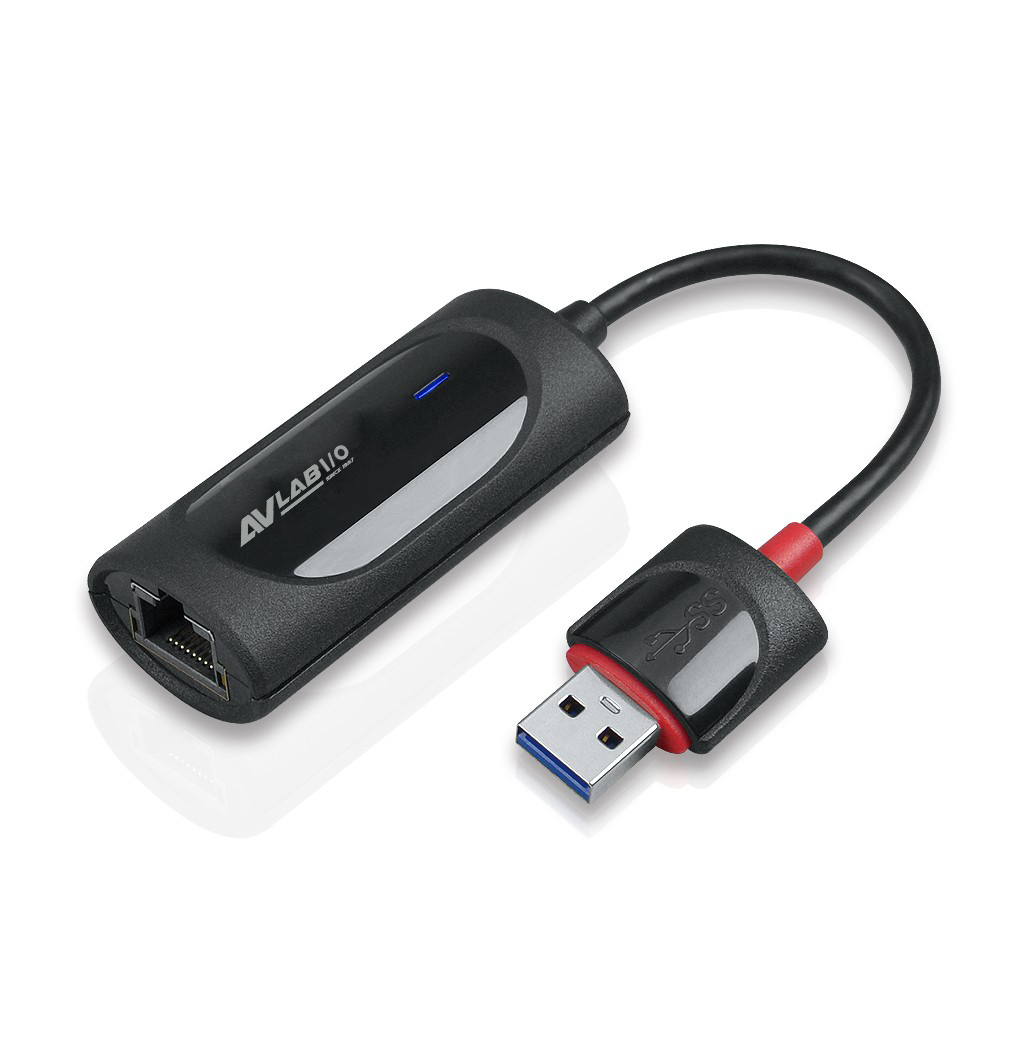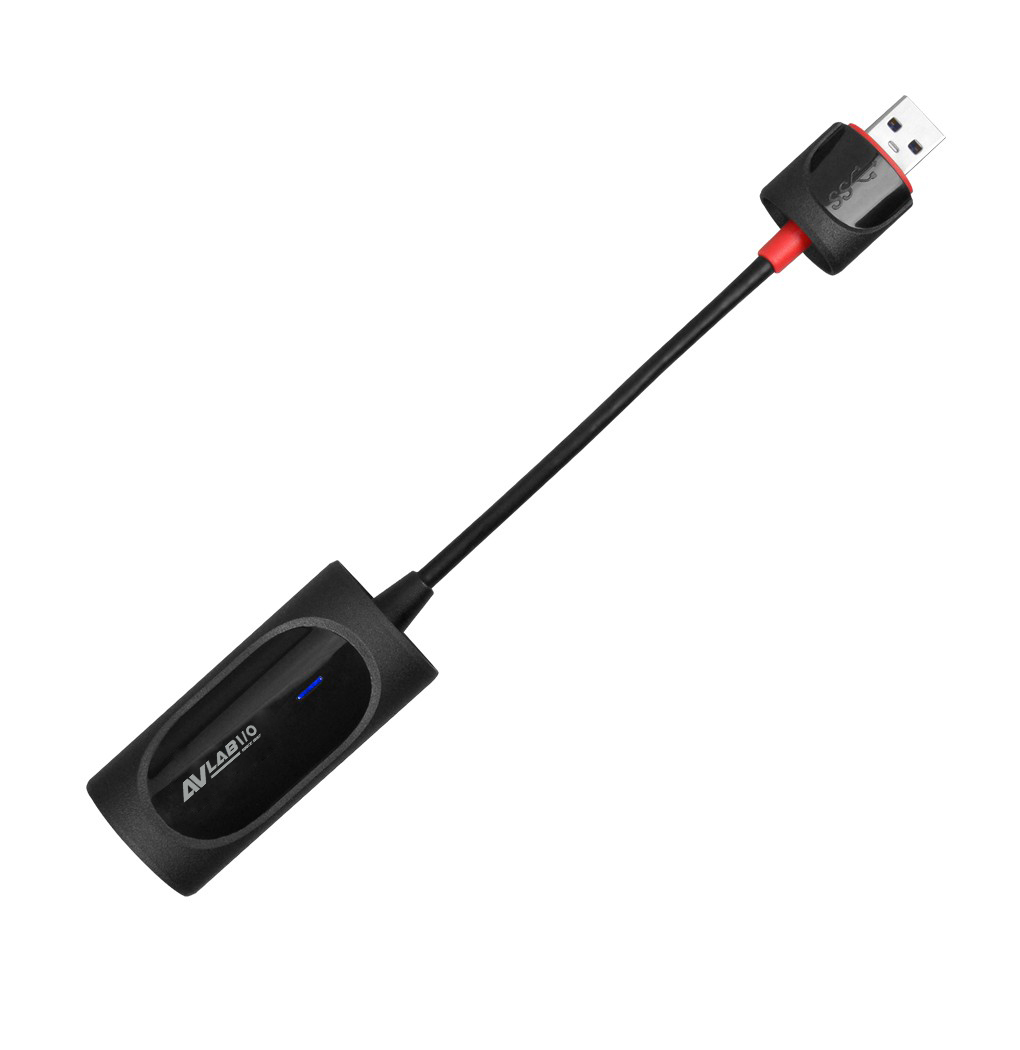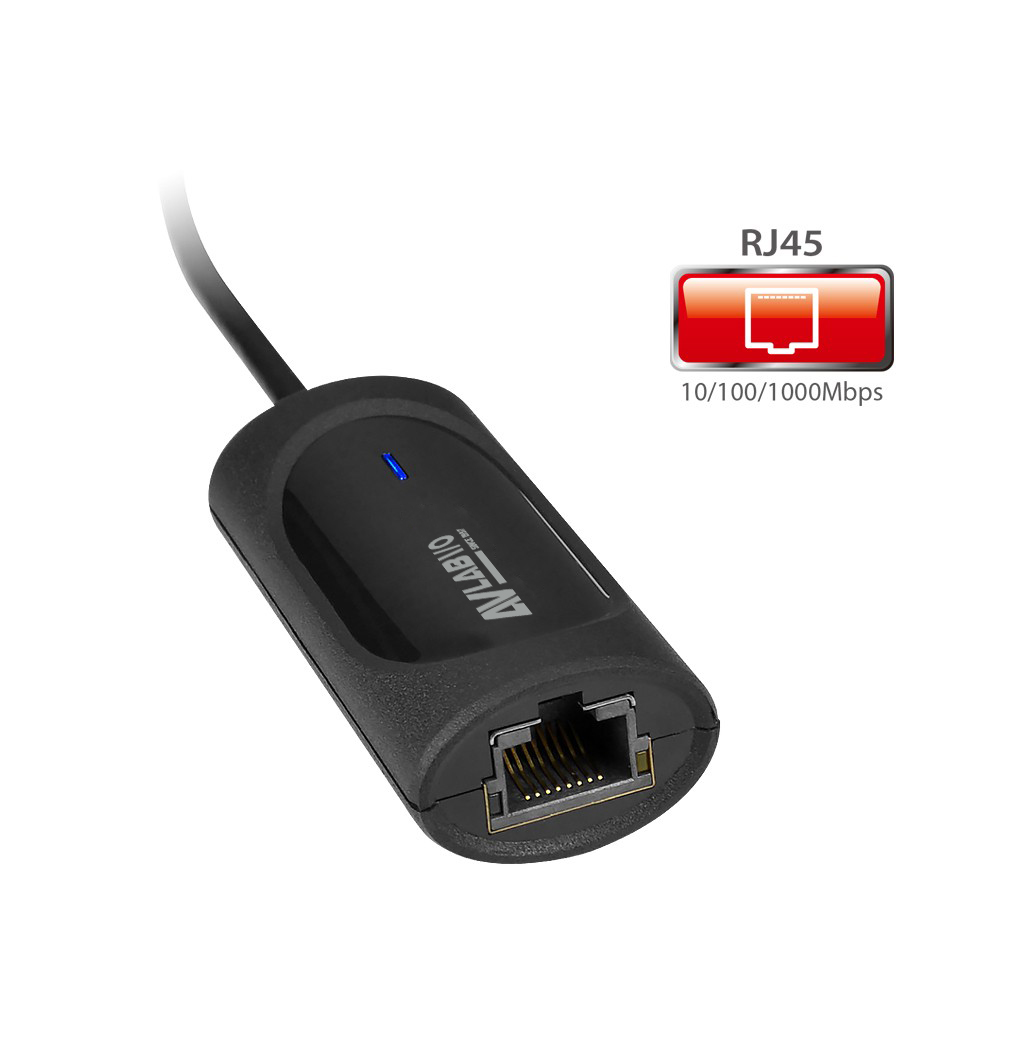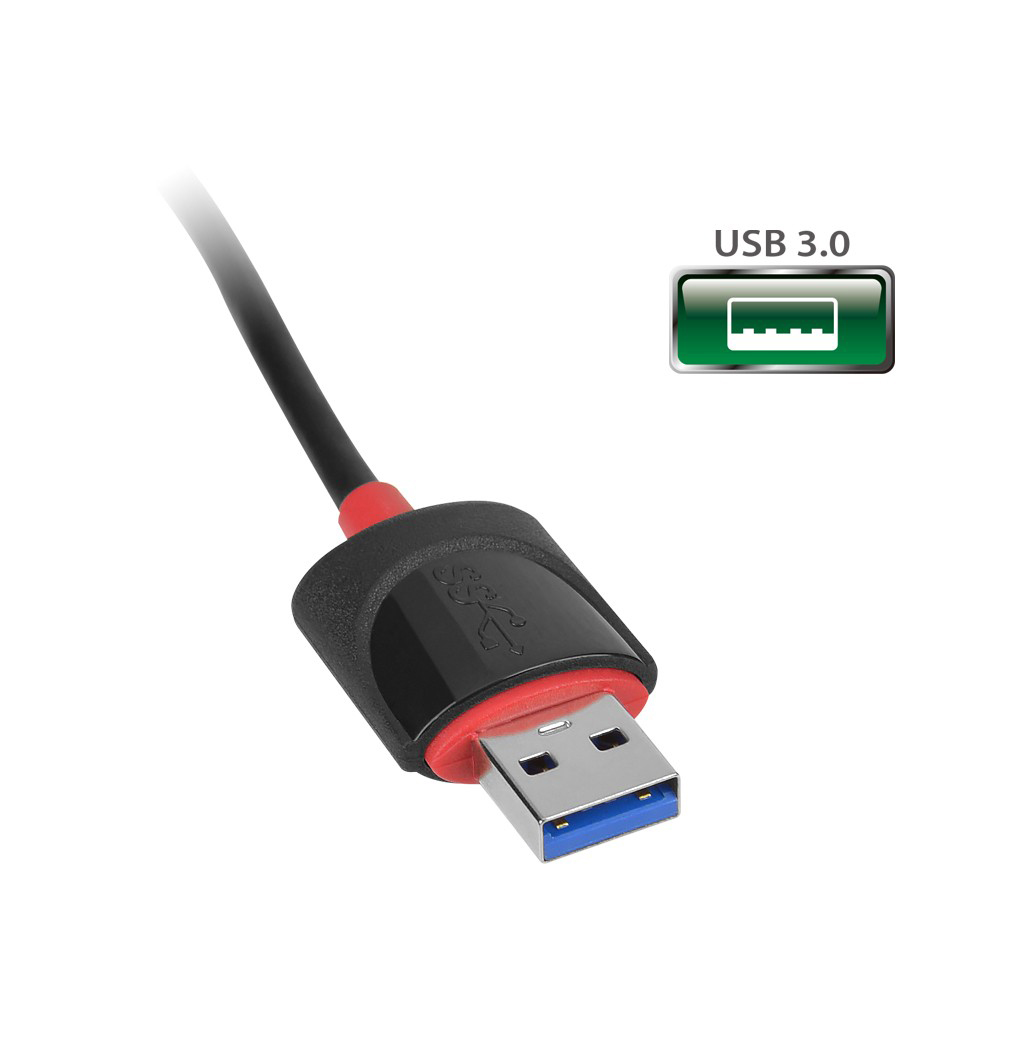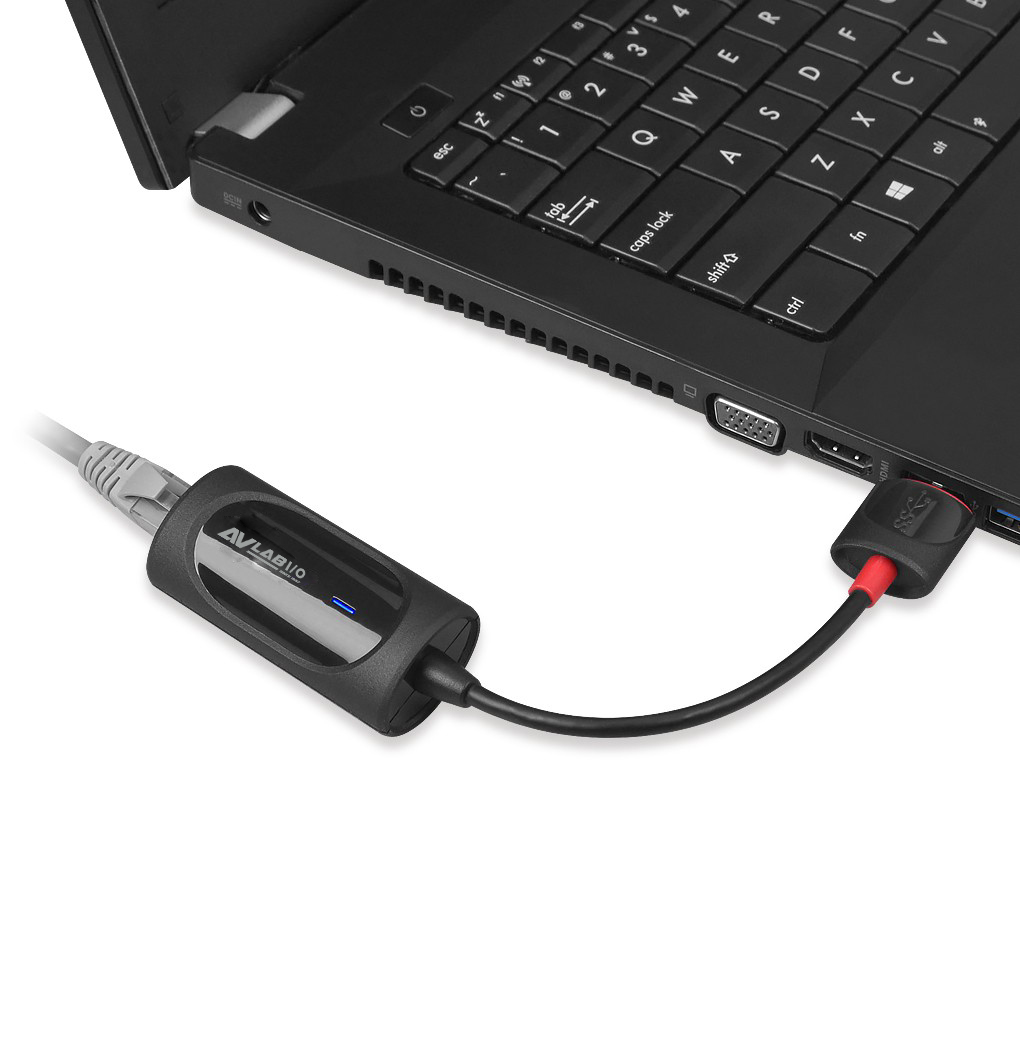- AVLAB-US19-1
- AVLAB SuperSpeed USB 3.0 Gigabit LAN Adapter - Black
■ Compact and light weight design makes it a perfect LAN accessory while on-the-go, provides instant wired Ethernet connection ■ Adds a Gigabit LAN port (RJ45) to your desktop, laptop or tablet computer through USB 3.0 connection ■ Supports advanced link down power saving when Ethernet cable is unplugged ■ Supports Wake-on-LAN ■ High performance packet transfer rate ■ Supports MDI/MDIX auto-crossover, Wake-on-LAN, IEEE 802.3az (Energy Efficient Ethernet) and Jumbo Frame ■ Built-in power and data diagnostic LEDs ■ Supports full duplex with flow control and half duplex with back pressure operation ■ Supports crossover detection and auto-correction
Highlights
Compact and light weight design
makes it a perfect LAN accessory while on-the-go, provides instant wired Ethernet connection
Adds a Gigabit LAN port (RJ45)
to your desktop, laptop or tablet computer through USB 3.0 connection
Supports advanced link
down power saving when Ethernet cable is unplugged
Supports Wake-on-LAN
High performance packet transfer rate
Supports MDI/MDIX auto-crossover
Wake-on-LAN, IEEE 802.3az (Energy Efficient Ethernet) and Jumbo Frame
Built-in power and data diagnostic LEDs
Supports full duplex
with flow control and half duplex with back pressure operation
Supports crossover detection and auto-correction
Specification
Chipset: Realtek RTL8153
Compliant with Universal Serial Bus 3.0 Specification and backward compatible with USB 2.0
Supports full duplex operation with IEEE 802.3x flow control and half duplex operation with back-pressure flow control
Compatible with IEEE 802.3, 802.3u
Supports IEEE 802.3az (Energy Efficient Ethernet)
Supports IEEE 802.1Q VLAN tagging
Supports IPv4/IPv6 packet Checksum Offload Engine to reduce CPU loading
Supports IEEE 802.1P Layer 2 Priority Encoding
Product:
■ Overall length (including embedded USB cable): 7.48" (190mm)
■ Dimensions (housing): 2.56" (W) x 1.14" (H) x 0.79" (D)
■ Weight: 0.07 lbs
■ Color: Black
■ Housing material: Plastic
Connectors:
■ 1x 9-pin, USB 3.0, A-Type, Male
■ 1x 8-pin, RJ45 with 2 LED indicators, Network, Female
Environmental conditions:
■ Operating temperature: 32 to 122 degrees F
■ Storage temperature: 14 to 140 degrees F
■ Relative humidity: 5% to 85% RH (non-condensing)
Certifications/Standards: FCC, CE, RoHS
Warranty: 1 year limited
Country of origin: China
FAQ
- Q: What is USB Type-C?
- USB-C is a type of USB connector that is capable of supporting the following: ■ Data transfer speeds up to 10Gbps, if you use USB 3.1. ■ Bi-directional power delivery up to 100W, if both the USB host connection and the device support it. ■ Alternate modes, which deliver different types of data at different speeds. For example, DisplayPort Alternate Mode (DP Alt Mode). If using Thunderbolt 3 over USB-C, the connection is capable of additional features. For example, Thunderbolt 3 is capable of 40Gbps of total bandwidth. Not all USB-C ports or devices are capable of supporting all of the features listed above, or all of the features at the maximum capabilities. If you require a specific USB-C feature, your USB host connection, cables, and device must all support the feature that you require. For more information about whether your components support specific USB-C features, refer to the information provided by the manufacturers.
- Q: How do I confirm that Windows detects my USB device?
- To confirm that Windows detects your USB device, complete the following: Press the Windows key+R, type devmgmt.msc, and press Enter. In Device Manager, under the appropriate heading, confirm that your expansion card is listed and that there isn't an exclamation mark next to it. For example, a USB device would be under Universal Serial Bus controllers.
- Q: How do I confirm that Windows detects my expansion device?
- To confirm that Windows detects your expansion card, complete the following: Press the Windows key+R, type devmgmt.msc, and press Enter. In Device Manager, under the appropriate heading, confirm that your expansion card is listed and that there isn't an exclamation mark next to it. For example, a USB device would be under Universal Serial Bus controllers.




